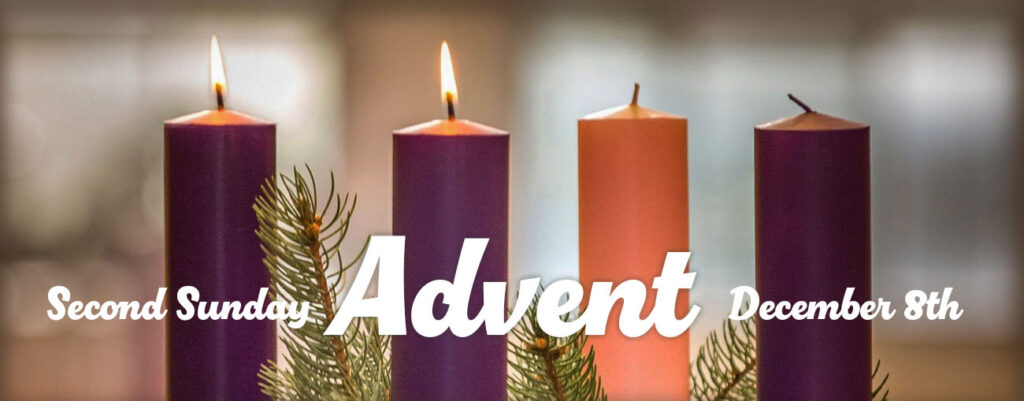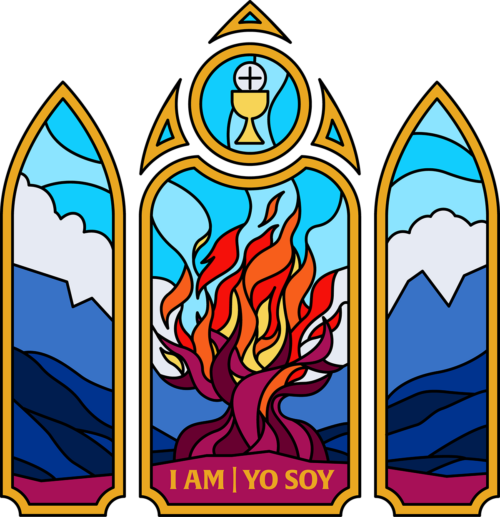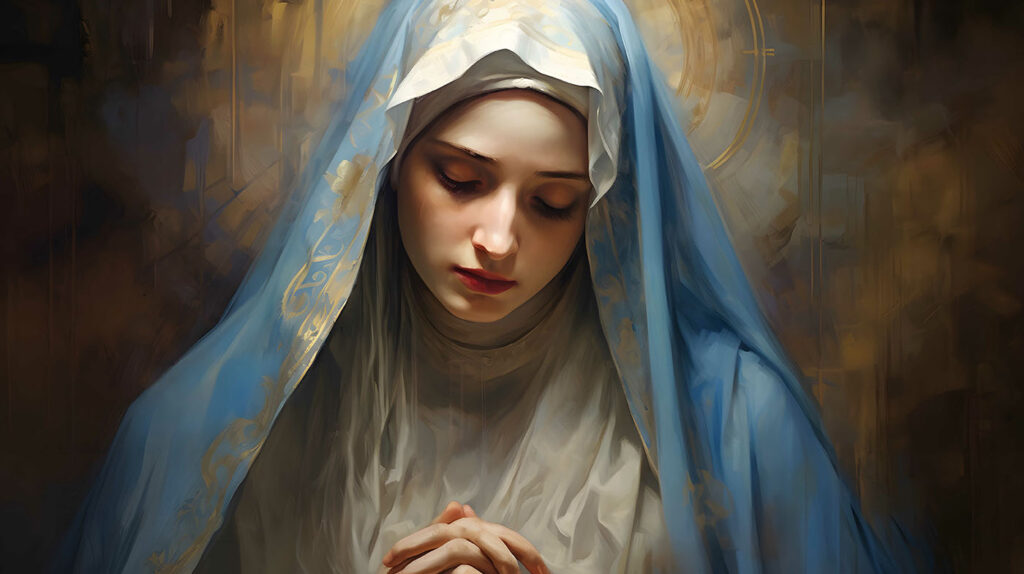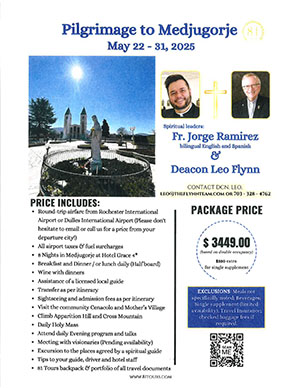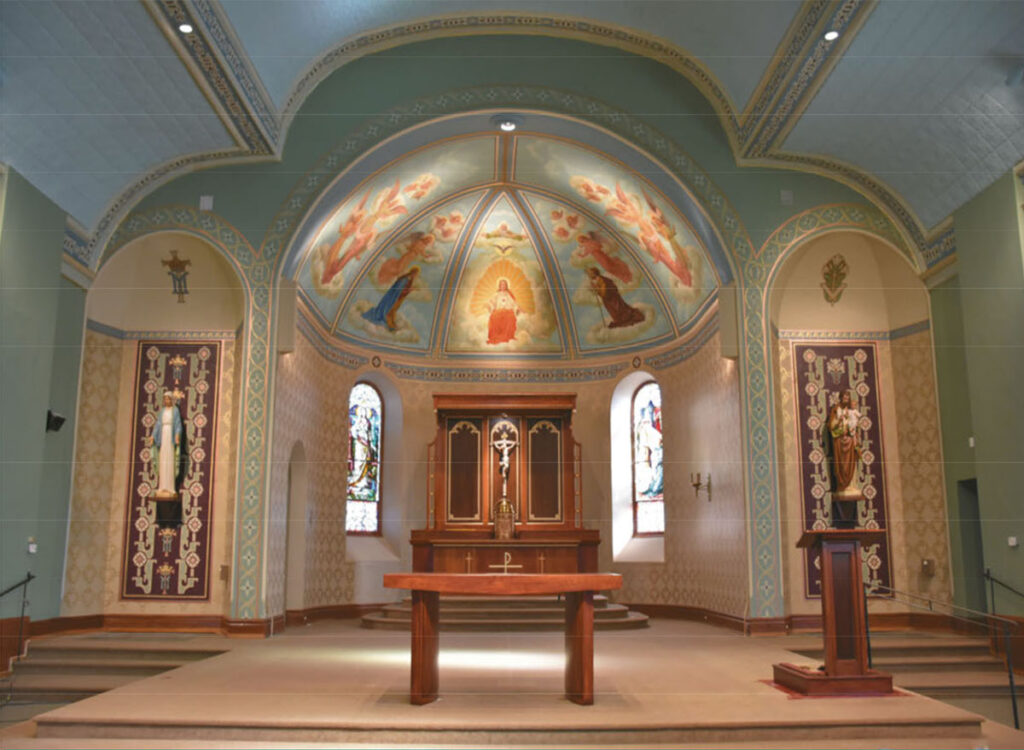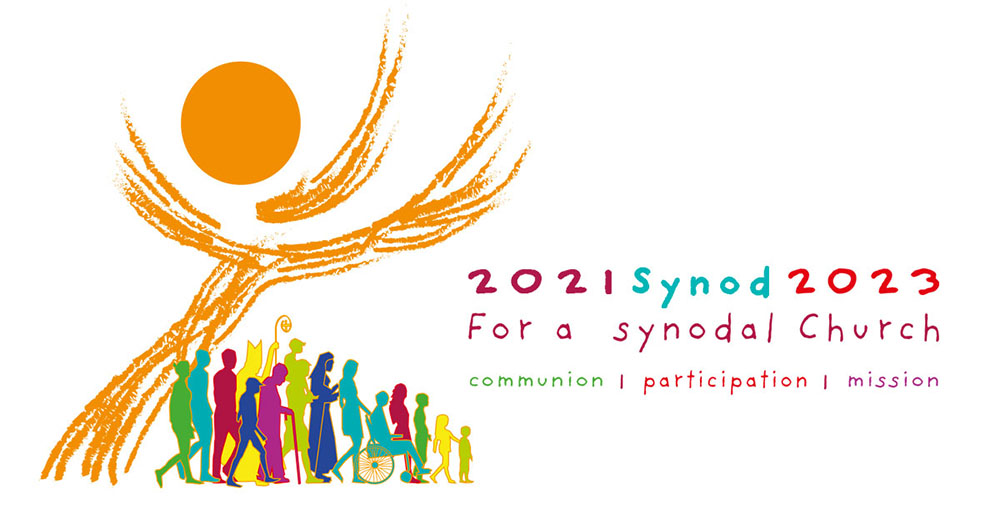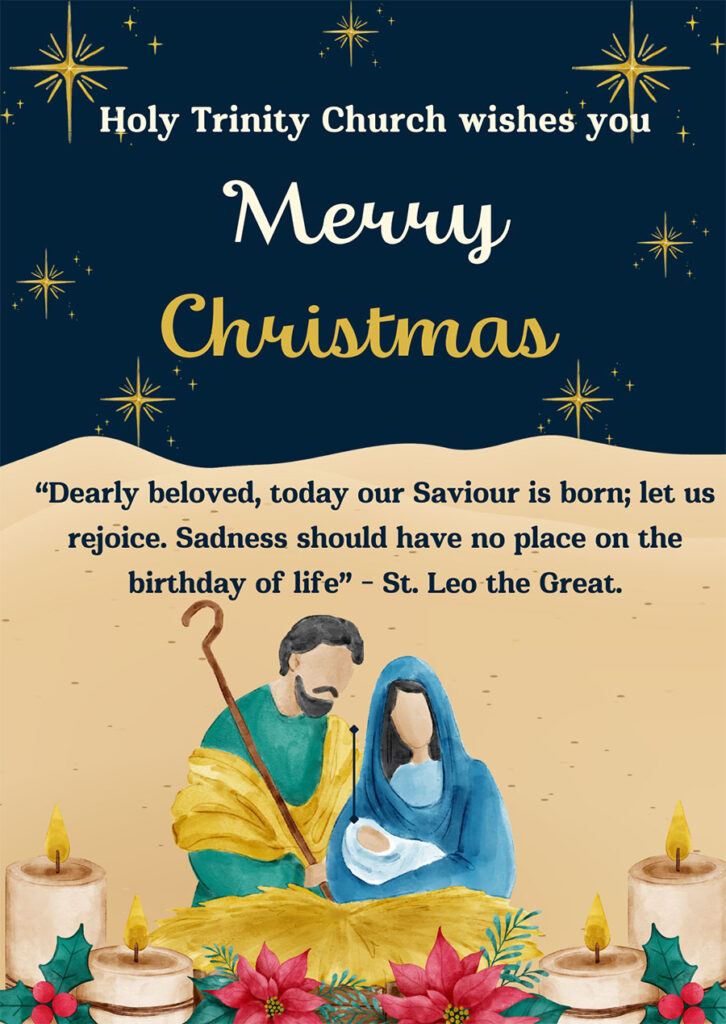
“For today in the city of David a savior has been born for you who is Messiah and Lord.” (Lk. 2:11). This is the announcement of the angels when the Son of God finally was born through our Mother, the Blessed Virgin Mary, in a manger. Christmas means the joy of celebrating that Jesus is in our lives because God loves us very much. Because of this joy is that all of us have special decorations in our homes, we have delicious food such as cookies, chocolate, or ham.
The angels invite not only the shepherds to go and adore the newborn baby, but also to each one of us. We cannot forget that the main reason of Christmas is Christ. Look at that fragile boy. Look at him, his innocence, tenderness, and all of love that God made man has for all of us. Our mission is not only to feel the love of God who is given us through this child, but to transmit the same love in our society who is living in crisis because of violence in many places, such us Ukraine, Israel, South America, Africa, Asia, and of course, our country.
Pope Francis in his Message on Christmas 2023 called Urbi et Orbi (December 25, 2023) invites us to proclaim this message of joy. “What kind of joy? Not the passing happiness of this world, not the glee of entertainment but a joy that is “great” because it makes us great. For today, all of us, with all our shortcomings, embrace the sure promise of an unprecedented gift: the hope of being born for heaven. Yes, Jesus our brother has come to make his Father our Father; a small child, he reveals to us the tender love of God, and much more. He, the Only-Begotten Son of the Father, gives us “power to become children of God” (Jn 1:12). This is the joy that consoles hearts, renews hope and bestows peace. It is the joy of the Holy Spirit: the joy born of being God’s beloved sons and daughters” (Urbi et Orbi. You can read the complete message from Pope Francis).
Let us celebrate Christmas with love and joy. Let us eat delicious food with our family and friends, let us sing Christmas carols and enjoy the snow in company of our children. Let us rejoice because the Emmanuel is among us. Let us keep Christ in Christmas through an amazing action that we can do for our relatives, family, friends, and strangers. Let us live Christmas the whole year because the baby Jesus is always in our hearts and came to us in the wonderful sacrament of the Eucharist
I, as the Pastor of the Church of the Most Holy Trinity and on behalf of our staff, wish you Merry Christmas! ¡Feliz Navidad! May the Baby, who was born in Bethlehem, be born again this Christmas in your hearts and homes and be with you always. Feliz Navidad, Merry Christmas, my brothers and sisters. Enjoy these wonderful Holy Days in the company of your beloved ones and, of course, the Holy Family, Jesus, Mary, and Joseph.
Remember, The parish that we dream is the parish that I help to build!
God bless you and may the Blessed Virgin Mary be with you always!
Fr. Jorge Ramírez


